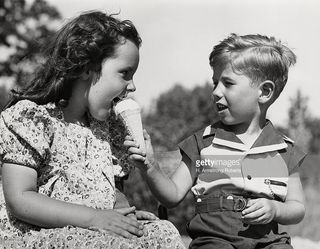
Personality
What Makes a Person Kind?
Exploring the debate between inborn personality traits and situational effects
Posted March 25, 2016

Guest Author: Alexandra Lane
Do you consider yourself a kind person? How do you judge kindness in others – by how they act or the general vibe they give off? Do certain situations elicit kindness, or is it a trait you carry inside yourself no matter the circumstances?
In psychological research these are complicated questions, involving the interaction of inborn personality, situation, and behavior. The earliest personality research in the field looked at traits, distilled by many personality psychologists into the Big Five, or the five factor model of personality. These traits are 1. Openness to experience, 2. Conscientiousness, 3. Extraversion, 4. Agreeableness, and 5. Neuroticism. People tend to score the similarly on scales that measure these traits over and over again, even if they complete the scales months or years apart. This tells us that each trait represents stable predispositions within each of us. Yet early research did not show much relationship between these traits and observed behavior.
Later research into personality, led by Walter Mischel, focused on situations and how they lead to changes in behavior. This makes an intuitive sort of sense. People aren’t inherently extraverted – they might be quiet in a room full of strangers, and the life of the party in the company of friends. Scores of studies were launched after the 1964 murder of Kitty Genovese, allegedly witnessed by as many as thirty-eight people without anyone coming to her aid. Later, reporters found out that a number of people took some actions to help, but the murder still inspired a great deal of research on the “bystander effect.” Psychologists found that people are less likely to help someone if there are strangers nearby. They coined the term “diffusion of responsibility” to describe how people in a crowd are less likely to react to someone in distress because they take their cue from others’ inaction. Another noteworthy study, by John Darley and Daniel Batson, found that theology students asked to deliver a lecture on the Good Samaritan were less likely to stop to help a groaning man if they were in a hurry.
These and many other studies seem to paint a decisive picture of harried, changeable human beings without any sort of constant personality. However, when the findings are examined from a different angle, we see something else. Even when an experiment is designed to discourage helping behavior, for example, when the theology students were told they were late, a small but steady minority helped the fallen man anyway. Our research team examined 286 studies of helping and found that over 40% of people helped spontaneously in control groups without encouragement and that slightly less than 40% helped in conditions that actively discouraged helping. This means that, despite the experimenter’s manipulations, some people were kind. This suggests that situations might interact with traits to determine whether a person will behave kindly, and that discouragement will not stop some people from being helpful.
Of the Big Five traits, agreeableness has shown the most consistent correlation with kind and helpful behaviors. Right now, our research group is performing a series of experiments to test these ideas about kindness, its origins, and the sort of situations that bring out kind behavior. In our first study, the trait of kindness predicted helping, but neither agreeableness nor mood did. By looking at both enduring traits, as assessed by personality scales, and momentary events that influence a person’s mood, we are trying to figure out which factors best predict kind actions. Because we are examining both trait and situation at once, we will also be able to see how these factors interact. We hope that, these studies will help tug at the knot of influences that contribute to who acts kindly, when, and why.

